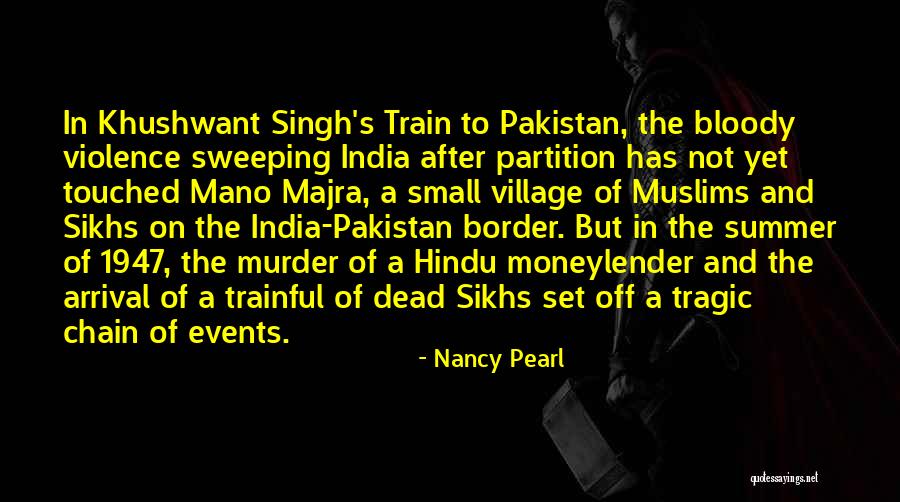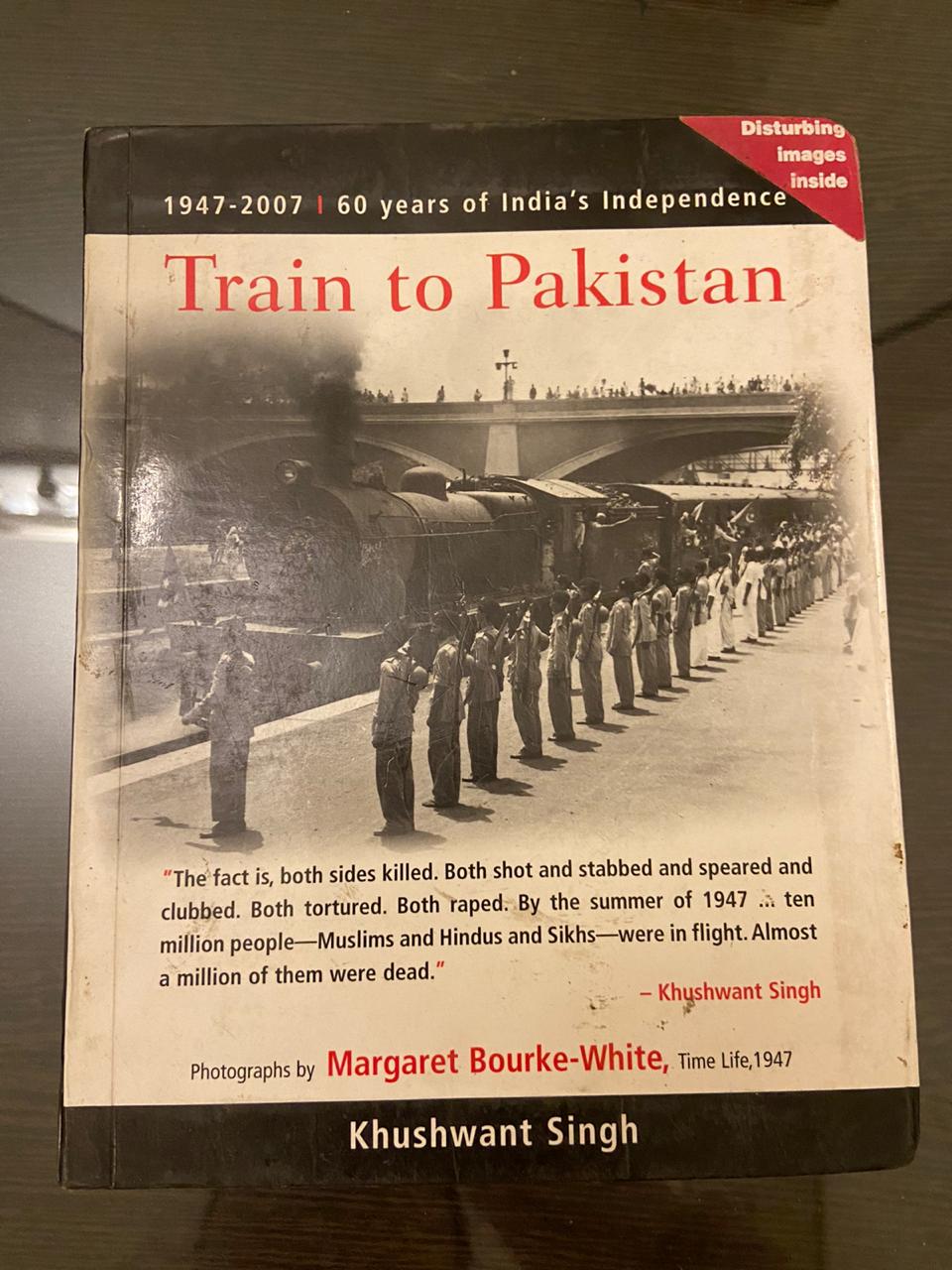

If the Pakistani soldiers on the train stop it, then those with spears and swords will kill the Muslims not killed by the guns.Īfter explaining his plan, the leader of the mob and his group stay in the gurdwara for the night, as do Malli and his gang.
#The train to pakistan 1947 windows
Members of the mob will stand along the train tracks and shoot at the windows of the train as it passes. As the train passes under it, everyone on top of the train will be swept off. The leader’s plan is simple: the next day after sunset they will stretch a rope across the first span of the bridge. Meet Singh and the lambardar try to eavesdrop, but are driven off. The leader leads everyone in a prayer for the success of their mission, and then gathers the mob to plan their attack. Altogether, 50 people agree to be part of the mob. The Sikh refugees join him, and so do several villagers, some who were crying the previous day during the departure of the Muslims. At this, a long silence ensues, until Malli and his gang come to the threshold of the gurdwara, and volunteer to take part in the massacre. The leader doesn’t care, because to him any Muslim is a bad Muslim. Meet Singh, who throughout the leader’s speech has been the only voice of dissent, says that this train will have Mano Majra Muslims on it.
#The train to pakistan 1947 full
There is a train of Muslims crossing the bridge to Pakistan, and if they do their job correctly, the train will be full of dead people by the time it reaches Lahore. This is what the leader was waiting for, and he tells them his plan.

The Mano Majra Sikhs begin to feel ashamed, and the lambardar asks what they can do. All of the leader’s words are hitting home. When the lambardar mentions the government, the young man scoffs and calls the government cowardly. He tells them of the massacres Muslims have committed in Multan, Gujranwala, and other towns across the continent, and scolds the villagers for not taking action. He uses vulgar language not proper for a temple when speaking rudely to the villagers of Mano Majra. The leader of the group is an impertinent and educated young man. The men begin to antagonize the people of Mano Majra by saying their village looks dead, and calling them all eunuchs for not actively retaliating against Muslims.

The voice belongs to a Sikh man dressed in a khaki uniform with a rifle slung over his shoulder. They sleep fitfully, until a voice calls into the gurdwara, asking if they are all dead. When he finishes, everyone lies down and tries to fall asleep, but the day’s events haunt them. Meet Singh leads the prayer as the Sikhs of Mano Majra and the Sikh refugees sit and listen. Attendance is usually not so high, but the recent events have made the remaining villagers leery of being alone. That evening, the entire village comes for Meet Singh’s prayer at the gurdwara. However, this time the soldiers use a bulldozer to dig a mass grave, and deposit the bodies in it. The Mano Majrans know what the train contains, and wait for the soldiers to come ask for firewood again. Soldiers and police have cordoned the area off, and are investigating the train that has come in the previous night. The night watch returns to the village, but finds everyone distracted by the scene unfolding at the railway station. The police are corrupt and ineffective, and telling them would be futile. The night watch realize that a massacre has happened somewhere upstream, but doesn’t know who to inform. The night watch at first believe these are the victims of a flash flood, but as the bodies come nearer the mutilation of them can be clearly seen. Bodies of men, women, children, and livestock float down the Sutlej. The morning breaks, and the men can finally see the river clearly. The train comes to a stop at the railway station, but no one comes out. Then, they hear the rumbling sound of a train from the direction of Pakistan. The men speculate that the river has swept away a nearby village. Suddenly, a dead cow floats by, along with pieces of thatch and clothing. As the night watch keeps their vigil, they begin to hear voices and cries for help from over the water. The lambardar organizes a night watch to keep an eye on the river, just in case it overwhelms the mud dam and heads towards the village. Soon, the river becomes the main topic of conversation, and the events of the morning are forgotten. At first no one is interested, but then they realize how high the river has risen. As the remaining Mano Majrans sit and watch Malli’s men and the Sikh refugees loot the abandoned Muslim houses, word comes that the Sutlej has risen.


 0 kommentar(er)
0 kommentar(er)
